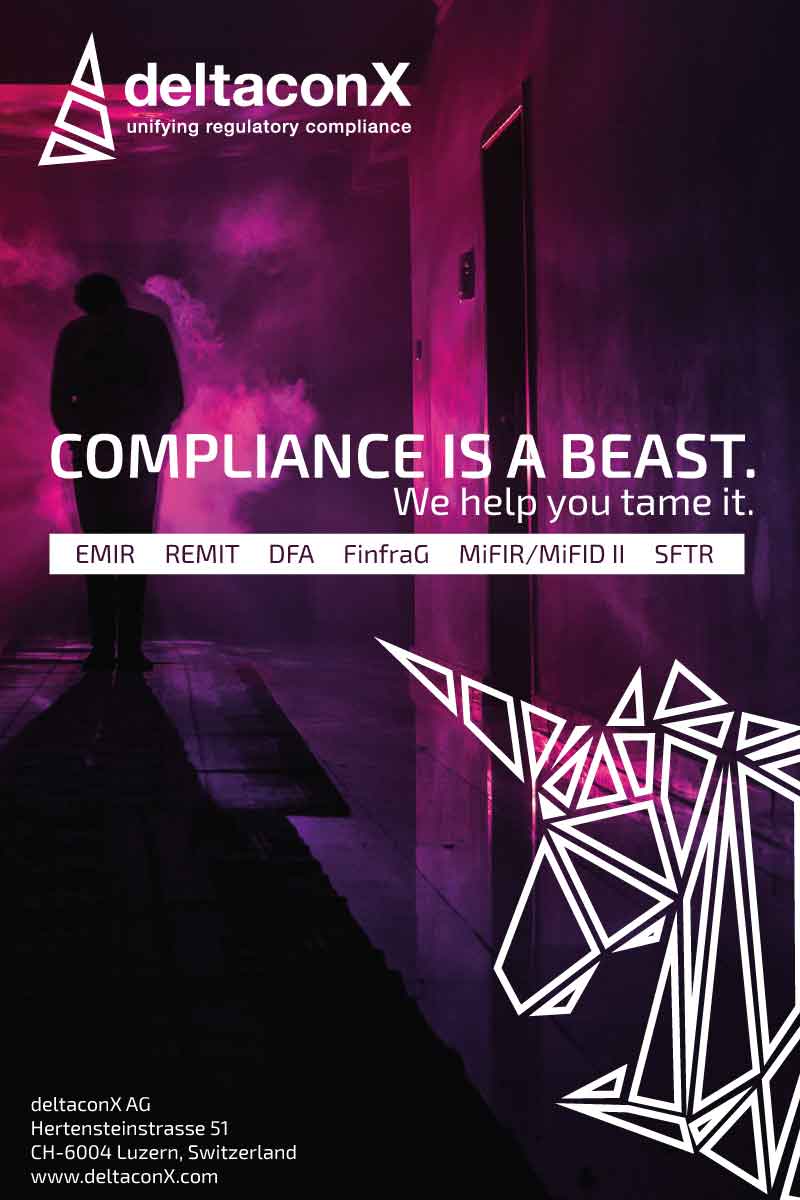ACA Group reveals 97% of firms are reporting incorrectly under MiFIR/EMIR
18 June 2021 UK
 Image: NAKHARIN/adobe.stock.com
Image: NAKHARIN/adobe.stock.com
New research looking into the accuracy of transaction reporting under MiFIR/EMIR has shown that 97 per cent of firms reviewed are currently reporting incorrectly.
ACA Group’s research found that 87 per cent are confident in the quality of the reports that they submit to regulators via approved reporting mechanisms and trade repositories under Markets in Financial Instruments Regulation (MiFIR) and/or the European Market Infrastructure Regulation (EMIR).
This is with many many assuming that no direct contact from the Financial Conduct Authority (FCA) means that all must be well.
The report highlights that analysis of the data shows that firms’ reports featured, on average, over 30 separate error types, which suggests this is not just a case of a single mistake affecting all reports.
Instead, it indicates this is potentially a widespread misunderstanding of how certain reporting requirements apply to firms and their activities, particularly when arrangements and activities change.
ACA affirms that transaction reporting plays a fundamental role in market abuse surveillance and regulatory attention on data quality and timeliness is expected to increase in 2021 and beyond.
According to the report, data quality is still poor as firms struggle to implement best practices and fully identify how reporting fields need to be populated differently to reflect different trading scenarios.
The report also attains that further challenges for firms include identifying and correcting errors and collaborating effectively with third parties delivering their reporting.
Matt Chapman, managing director and co-lead of the ACA’s Regulatory Reporting & Assurance (ARRMA) Service, ACA Group, comments: “There is clearly a gap between perception and reality when it comes to transaction reporting. Nearly 87 per cent of respondents in our recent survey said they were confident their transaction reporting is 100 per cent accurate and timely.”
“Yet, our analysis shows that it is highly likely the reports in question would have contained errors,” Chapman explains.
Chapman suggests getting trade and transaction reporting right is going to continue to grow in importance over the next 24 months.
Regulators have repeatedly described complete and accurate reporting as a common good as well as their growing frustrations that firms aren’t getting it right, he notes.
“As a result, they are making no bones about the fact that they expect prompt and significant improvement.”
Chapman concludes: “Although lack of public enforcement action in relation to MiFIR and EMIR reporting may have lulled some firms into a false sense of security, they must be prepared for this to change in the months ahead, or face the consequences.”
ACA Group’s research found that 87 per cent are confident in the quality of the reports that they submit to regulators via approved reporting mechanisms and trade repositories under Markets in Financial Instruments Regulation (MiFIR) and/or the European Market Infrastructure Regulation (EMIR).
This is with many many assuming that no direct contact from the Financial Conduct Authority (FCA) means that all must be well.
The report highlights that analysis of the data shows that firms’ reports featured, on average, over 30 separate error types, which suggests this is not just a case of a single mistake affecting all reports.
Instead, it indicates this is potentially a widespread misunderstanding of how certain reporting requirements apply to firms and their activities, particularly when arrangements and activities change.
ACA affirms that transaction reporting plays a fundamental role in market abuse surveillance and regulatory attention on data quality and timeliness is expected to increase in 2021 and beyond.
According to the report, data quality is still poor as firms struggle to implement best practices and fully identify how reporting fields need to be populated differently to reflect different trading scenarios.
The report also attains that further challenges for firms include identifying and correcting errors and collaborating effectively with third parties delivering their reporting.
Matt Chapman, managing director and co-lead of the ACA’s Regulatory Reporting & Assurance (ARRMA) Service, ACA Group, comments: “There is clearly a gap between perception and reality when it comes to transaction reporting. Nearly 87 per cent of respondents in our recent survey said they were confident their transaction reporting is 100 per cent accurate and timely.”
“Yet, our analysis shows that it is highly likely the reports in question would have contained errors,” Chapman explains.
Chapman suggests getting trade and transaction reporting right is going to continue to grow in importance over the next 24 months.
Regulators have repeatedly described complete and accurate reporting as a common good as well as their growing frustrations that firms aren’t getting it right, he notes.
“As a result, they are making no bones about the fact that they expect prompt and significant improvement.”
Chapman concludes: “Although lack of public enforcement action in relation to MiFIR and EMIR reporting may have lulled some firms into a false sense of security, they must be prepared for this to change in the months ahead, or face the consequences.”
NO FEE, NO RISK
100% ON RETURNS If you invest in only one asset servicing news source this year, make sure it is your free subscription to Asset Servicing Times
100% ON RETURNS If you invest in only one asset servicing news source this year, make sure it is your free subscription to Asset Servicing Times



